Yorkshire TerrierThe Elegant Toy Companion with Hypoallergenic Qualities 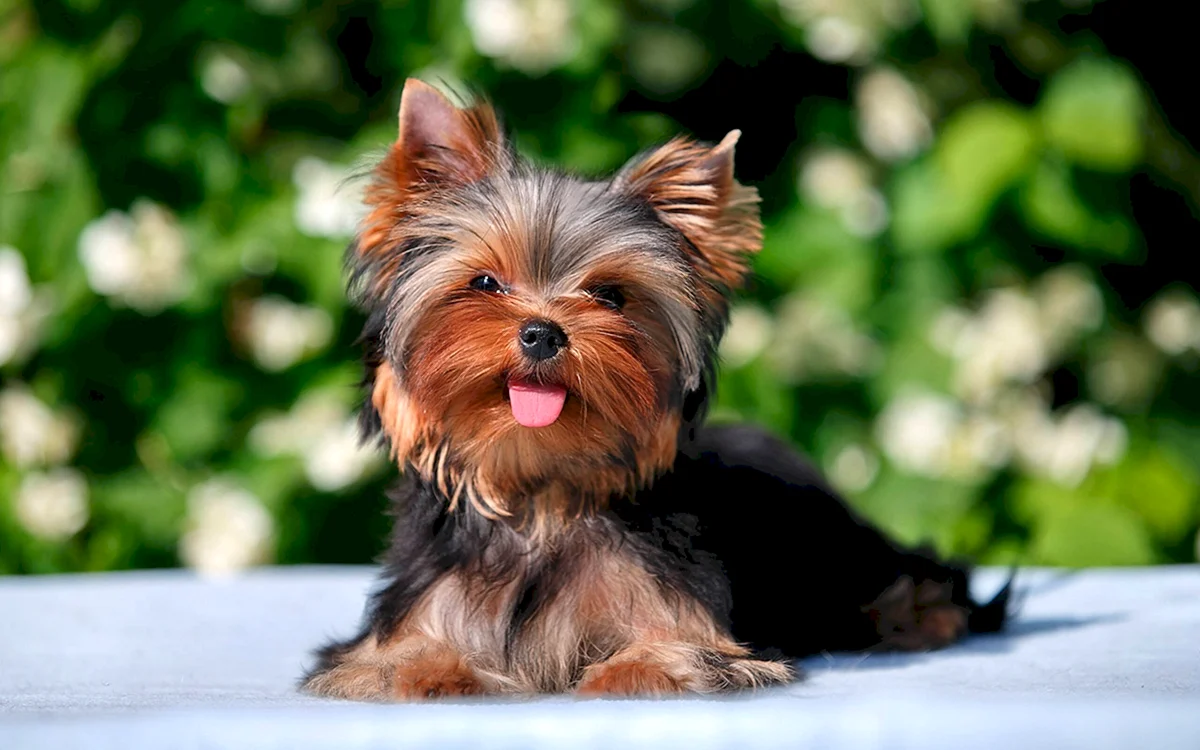
🟠 Moderately Hypoallergenic Breed
↑ Back to Menu
🏷️ Key Characteristics
Size: Toy breed (Small)
Weight: 4-7 pounds (2-3 kg)
Life Span: 13-16 years
Activity Level: Moderate to High
Care Difficulty: Moderate to High
Hypoallergenic: 🟠 Moderately (Low-shedding)
↑ Back to Menu
🏛️ Origin & History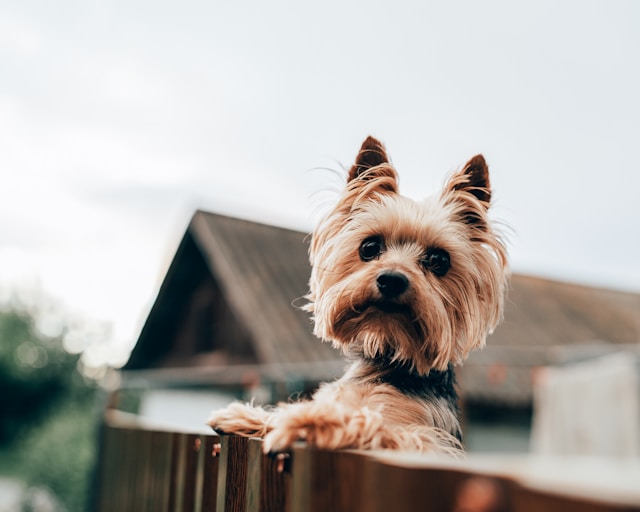
The Yorkshire Terrier, affectionately known as the "Yorkie," originated in Yorkshire, England, during the Industrial Revolution of the mid-19th century. These tiny terriers were initially bred by Scottish weavers who migrated to Yorkshire for work opportunities. The breed was developed by crossing various Scottish terrier breeds, including the now-extinct Paisley Terrier and Clydesdale Terrier, with local English ratting dogs. Originally, Yorkshire Terriers served a practical purpose in the textile mills and coal mines of Yorkshire. Their small size allowed them to navigate tight spaces while hunting rats and other vermin that threatened the workers' food supplies and spread disease. Despite their diminutive stature, these fearless little dogs proved incredibly effective at their job, earning respect from the working class. The transformation from working dog to fashionable companion began in the late 1800s when Victorian ladies discovered the breed's charm and elegance. The Yorkshire Terrier's beautiful, silky coat and confident personality made them popular among the upper classes. The breed was officially recognized by the Kennel Club in England in 1886 and later by the American Kennel Club in 1885, marking its transition from working dog to beloved companion.
↑ Back to Menu
💕 Character & Temperament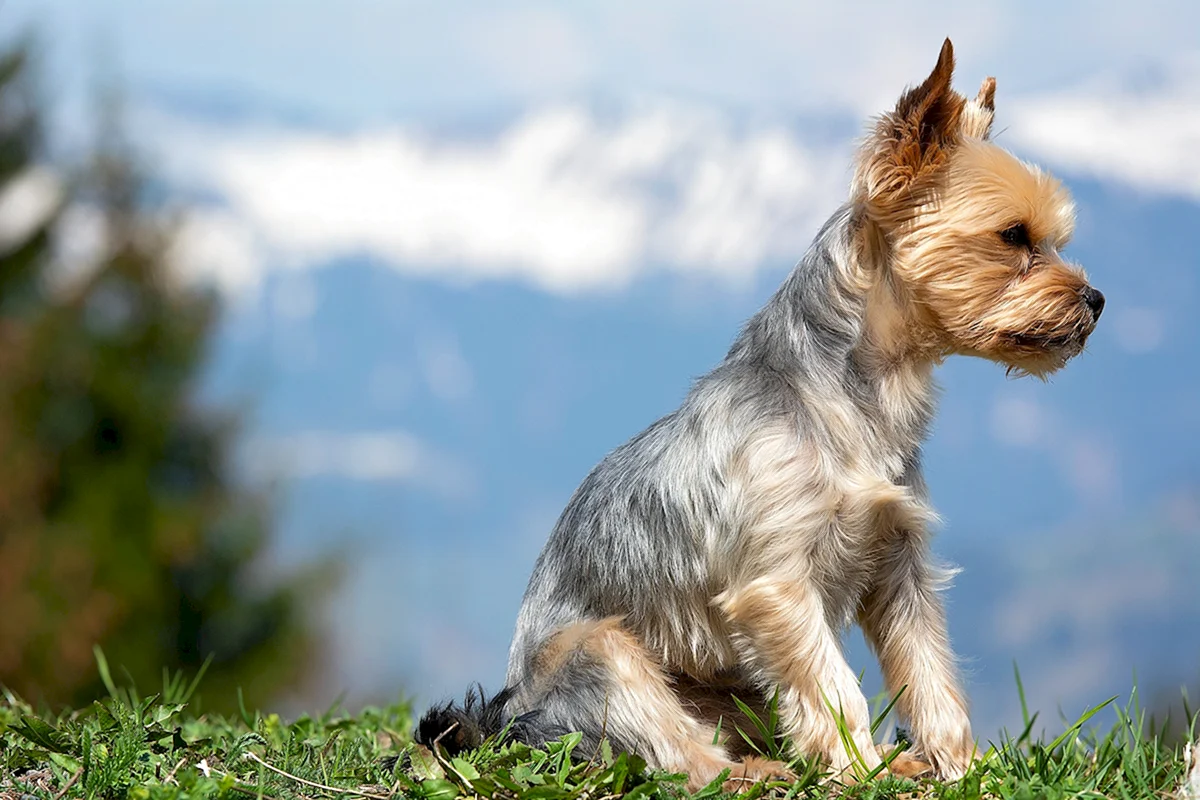
Yorkshire Terriers possess a personality that far exceeds their tiny physical frame. These confident, spirited dogs often forget their small size and display the courage and determination of much larger breeds. Yorkies are known for their feisty, energetic nature and their unwavering loyalty to their human families. They form strong bonds with their owners and can be quite protective, often serving as excellent watchdogs despite their size. Intelligence is another hallmark of the Yorkshire Terrier breed. These quick learners are eager to please and respond well to positive reinforcement training methods. However, their terrier heritage means they can also be quite independent and sometimes stubborn. Early socialization and consistent training are essential to channel their strong-willed nature in positive directions. While Yorkies are generally friendly and affectionate with their families, they can be wary of strangers and may require time to warm up to new people. Their alertness and tendency to bark make them excellent alarm systems, though this trait may need management in apartment settings. With proper socialization, Yorkshire Terriers can coexist peacefully with other pets, though they may try to dominate larger dogs due to their fearless nature.
↑ Back to Menu
👀 Physical Appearance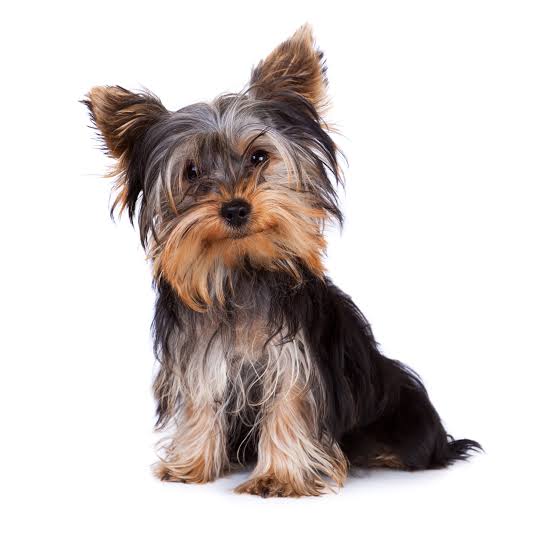
The Yorkshire Terrier is a compact, well-proportioned toy breed with an elegant and refined appearance. Despite their small stature, Yorkies carry themselves with confidence and pride, exhibiting a dignified bearing that reflects their terrier heritage. Their body is slightly longer than it is tall, with a level topline and a high-set tail that is typically docked to medium length in countries where the practice is still legal. The most striking feature of the Yorkshire Terrier is undoubtedly their magnificent coat. The breed standard calls for a long, silky, straight coat that parts naturally down the middle of the back from the nose to the tail. The coat color is particularly distinctive: a rich golden tan on the head and legs, contrasting beautifully with a dark steel blue on the body and tail. Puppies are born black and tan, with the blue coloration developing as they mature. Yorkshire Terriers have small, V-shaped ears that stand erect, giving them an alert and intelligent expression. Their dark, sparkling eyes are medium-sized and convey the breed's lively personality. The head is small and flat on top, with a moderately short muzzle and a black nose. Their compact feet are round with black nails, and their movement is free and jaunty, reflecting their confident and spirited nature.
↑ Back to Menu
🏃 Activity Needs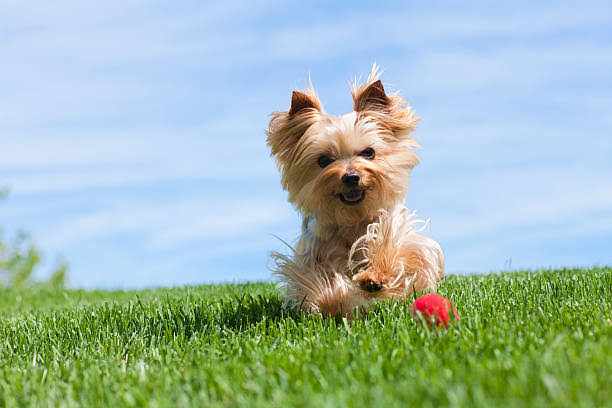
Despite their small size, Yorkshire Terriers have moderate to high energy levels and require regular exercise to maintain their physical and mental well-being. A typical Yorkie needs about 30 minutes of exercise daily, which can be divided into two or three shorter sessions. This exercise requirement can usually be met with indoor play, short walks around the neighborhood, and interactive games that stimulate both body and mind. Indoor activities can provide substantial exercise for Yorkshire Terriers due to their size. Playing fetch in a hallway, climbing stairs, or engaging in interactive puzzle games can help burn energy and keep them mentally stimulated. However, outdoor activities are equally important for socialization and environmental enrichment. Short walks, visits to dog parks (with careful supervision due to their size), and supervised playtime in securely fenced yards all contribute to their overall fitness. Mental stimulation is just as important as physical exercise for this intelligent breed. Yorkshire Terriers excel at learning tricks, participating in agility training scaled to their size, and solving puzzle toys. Training sessions should be kept short but frequent, as their attention span may be limited. Interactive toys, treat-dispensing puzzles, and hide-and-seek games can provide mental challenges that tire them as effectively as physical exercise.
↑ Back to Menu
✂️ Grooming Care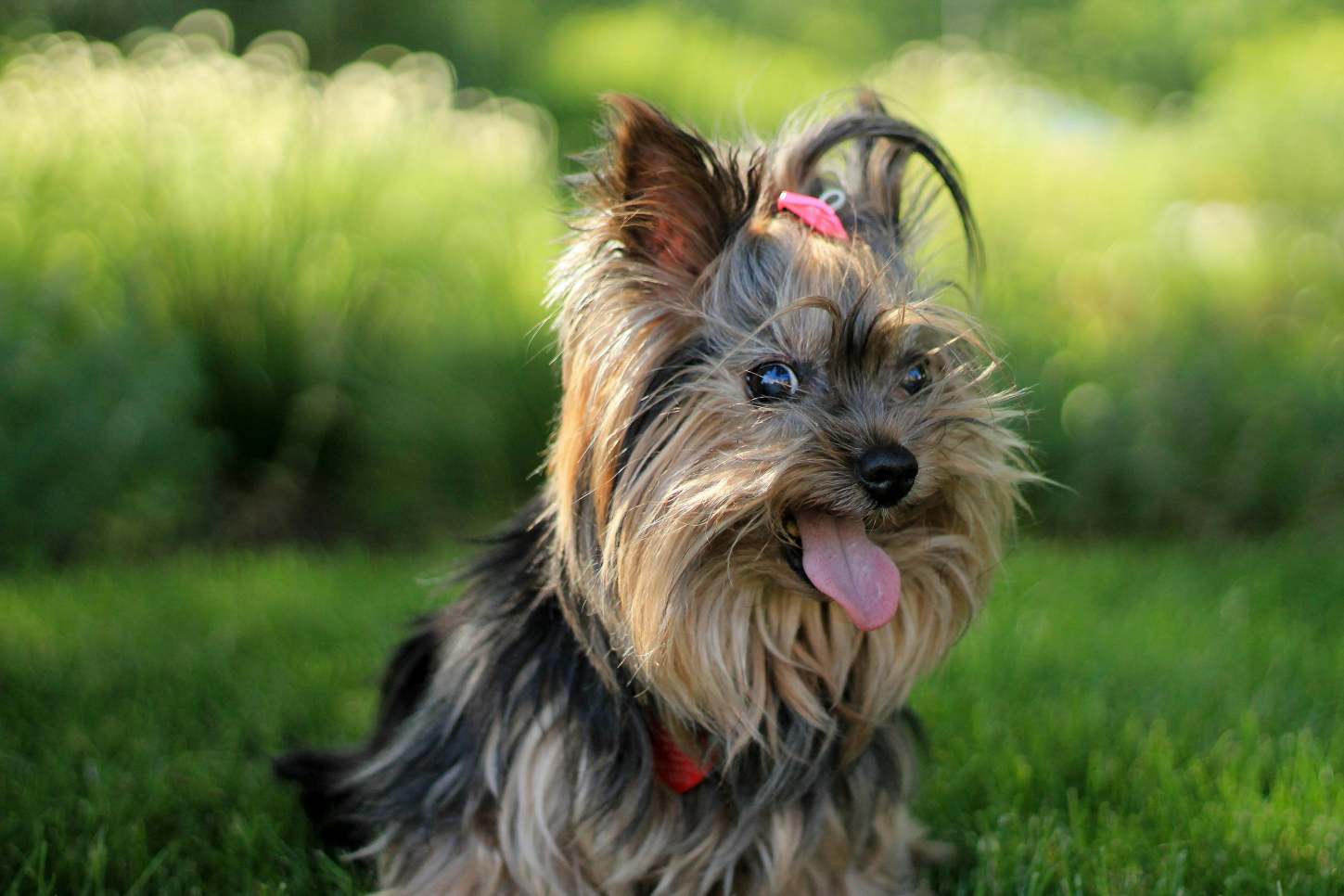
The Yorkshire Terrier's beautiful, silky coat is one of the breed's most attractive features, but it also requires significant maintenance to keep it healthy and looking its best. Daily brushing is essential to prevent matting and tangling, as their fine, hair-like coat can quickly become knotted without proper care. Using a high-quality pin brush and metal comb, owners should work through the coat systematically, paying special attention to areas prone to matting such as behind the ears, under the legs, and around the tail. Regular bathing is another crucial aspect of Yorkshire Terrier grooming. These dogs should be bathed every 2-3 weeks using a gentle, high-quality dog shampoo designed for long coats. After bathing, the coat should be thoroughly dried with a blow dryer on a cool setting while brushing to prevent matting and achieve the desired silky texture. Many owners choose to keep their Yorkies in a shorter "puppy cut" to reduce maintenance requirements while still maintaining the breed's characteristic appearance. Beyond coat care, Yorkshire Terriers require regular attention to their nails, ears, and teeth. Their small nails should be trimmed every 2-3 weeks to prevent overgrowth and splitting. The ears should be checked weekly and cleaned as needed to prevent wax buildup and infections. Dental care is particularly important for toy breeds, as they are prone to dental issues. Daily teeth brushing with dog-safe toothpaste and regular dental checkups help maintain oral health and prevent periodontal disease.
↑ Back to Menu
🍽️ Nutrition Needs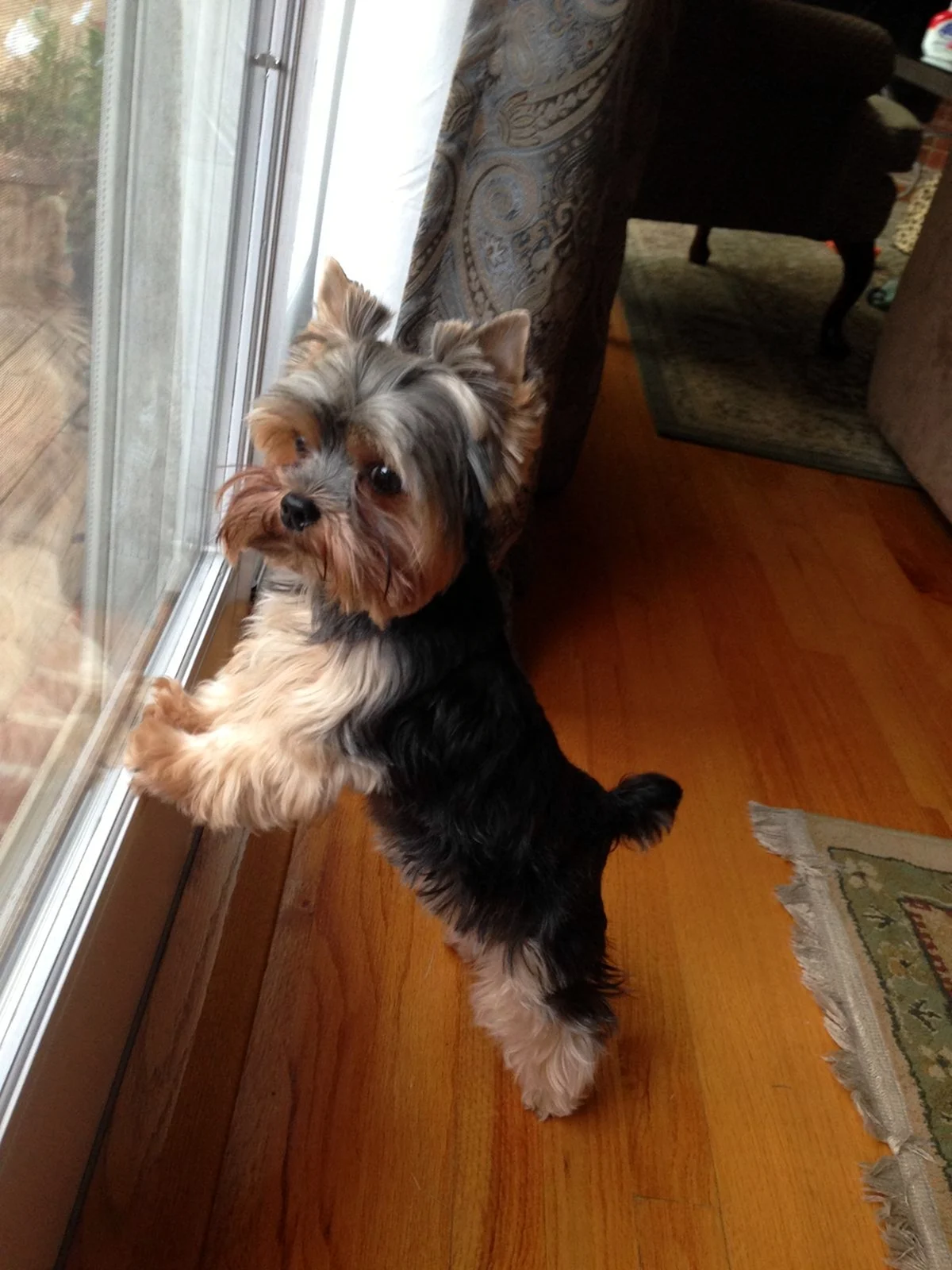
Yorkshire Terriers have specific nutritional requirements that reflect their small size, high metabolism, and potential health concerns. These tiny dogs typically require between 1/4 to 1/2 cup of high-quality dry food daily, divided into two or three small meals. The exact amount depends on the individual dog's age, activity level, metabolism, and body condition. Due to their small stomachs and fast metabolisms, frequent small meals help prevent hypoglycemia, a condition that can affect toy breeds. High-quality protein should form the foundation of a Yorkshire Terrier's diet, supporting their energy needs and maintaining their silky coat. Look for foods where meat, poultry, or fish is the first ingredient, and avoid foods with excessive fillers or by-products. The kibble size should be appropriate for their small mouths and teeth – many manufacturers offer small-breed formulas with appropriately sized pieces that are easier for Yorkies to chew and digest. Special dietary considerations for Yorkshire Terriers include monitoring for food allergies and sensitivities, which can affect their coat quality and skin health. Some Yorkies may benefit from limited ingredient diets if they show signs of food intolerance. Additionally, treats should be given sparingly and should not exceed 10% of their daily caloric intake. Fresh water should always be available, and feeding schedules should remain consistent to support their digestive health and prevent stomach upset.
↑ Back to Menu
👨👩👧👦 Suitable For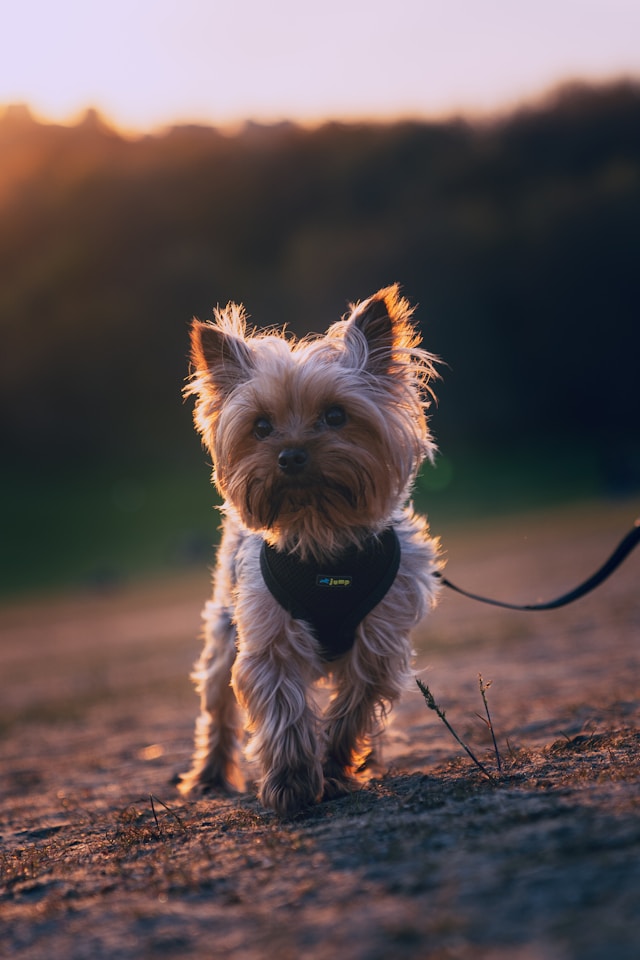
Families with ChildrenYorkshire Terriers can make wonderful family pets, but they are generally better suited to families with older children (ages 8 and up) who understand how to interact gently with small dogs. Their tiny size makes them vulnerable to injury from rough play or accidental dropping. Young children may not fully grasp the delicate nature of these dogs, potentially leading to stress for both the child and the pet. However, with proper supervision and education about gentle handling, Yorkies can form strong bonds with children and become devoted family companions. Apartment LivingYorkshire Terriers are exceptionally well-suited to apartment living due to their small size and moderate exercise requirements. Their compact stature means they don't require large living spaces, and much of their exercise needs can be met indoors. However, potential apartment owners should be aware that Yorkies can be vocal and may bark at noises or strangers, which could disturb neighbors. Early training to manage barking behavior is essential for successful apartment living. Owner Experience LevelYorkshire Terriers are better suited to experienced dog owners or those willing to invest significant time in training and grooming. While they are intelligent and trainable, their independent terrier nature can present challenges for first-time owners. The extensive grooming requirements, potential for small dog syndrome, and need for consistent socialization make them a breed that benefits from knowledgeable ownership. However, dedicated first-time owners who research the breed thoroughly and commit to proper training can certainly succeed with a Yorkshire Terrier.
↑ Back to Menu
⚖️ Pros & Cons✅ Advantages
❌ Disadvantages
↑ Back to Menu
❓ Frequently Asked QuestionsAre Yorkshire Terriers truly hypoallergenic?
Yorkshire Terriers are considered moderately hypoallergenic. While no dog is 100% hypoallergenic, Yorkies have hair rather than fur, which means they shed very little and produce fewer allergens. However, they still produce dander and saliva proteins that can trigger allergies in sensitive individuals. Learn more about Yorkshire Terrier hypoallergenic qualities. How much do Yorkshire Terriers bark?
Yorkshire Terriers are naturally alert dogs and can be quite vocal. They tend to bark at strangers, unusual noises, and to get attention. With proper training from an early age, excessive barking can be managed, but owners should expect some level of vocalization from this breed. Can Yorkshire Terriers live with other pets?
Yes, with proper socialization, Yorkshire Terriers can coexist with other pets. However, they may try to dominate larger dogs despite their size, and their prey drive may make them chase smaller animals like cats or rodents. Early socialization is key to successful multi-pet households. How often should I groom my Yorkshire Terrier?
Yorkshire Terriers require daily brushing to prevent matting and should be professionally groomed every 6-8 weeks. Baths should be given every 2-3 weeks, and nail trims are needed every 2-3 weeks. Many owners opt for shorter "puppy cuts" to reduce daily maintenance. Are Yorkshire Terriers good for first-time dog owners?
Yorkshire Terriers can be challenging for first-time owners due to their grooming needs, potential for small dog syndrome, and training requirements. However, dedicated first-time owners who research the breed and commit to proper training and socialization can succeed with Yorkies. What health issues are common in Yorkshire Terriers?
Common health concerns include luxating patella (kneecap dislocation), tracheal collapse, dental problems, hypoglycemia, and Legg-Calvé-Perthes disease. Regular veterinary checkups and maintaining a healthy weight can help prevent or manage many of these conditions. How much exercise does a Yorkshire Terrier need?
Yorkshire Terriers need about 30 minutes of exercise daily, which can be split into multiple short sessions. This can include walks, indoor play, and mental stimulation activities. Their exercise needs can often be met with indoor activities due to their small size. What is the average lifespan of a Yorkshire Terrier?
Yorkshire Terriers typically live 13-16 years, which is relatively long for dogs. With proper care, nutrition, and regular veterinary attention, many Yorkies live healthy, active lives well into their teens. 🌟 Final ThoughtsYorkshire Terriers make wonderful companions for the right owners who can provide the attention, grooming, and training these spirited little dogs require. Their moderate hypoallergenic qualities, combined with their loyalty and charm, make them excellent choices for those seeking a small, intelligent companion dog. | |
|
| |
| Переглядів: 142 | | |
| Total comments: 0 | |